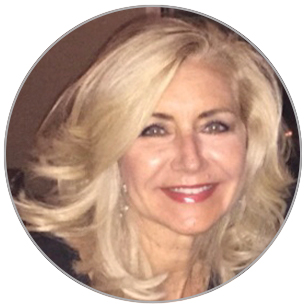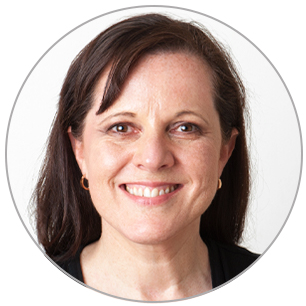How has the coronavirus affected sustainability, and how can supplier dialog and stakeholder cooperation improve sustainable purchasing?
Our Clare Hobby spoke to Donna Westermann, CEO at Sustainable Purchasing Leadership Council (SPLC), the US based non-profit organization whose mission is to support and recognize sustainable purchasing practices.

Donna Westermann
CEO at Sustainable Purchasing Leadership Council (SPLC)

Clare Hobby
Global Purchaser Engagement Director at TCO Development
Clare: Donna, tell us a little about yourself!
Donna: I’m really excited to join the Sustainable Purchasing Leadership Council and help lead the growth in sustainable procurement globally. My background is in pharma, personal care, gum and confectionaries, food and beverage, a data analytics company and now a nonprofit leader now focused on indirect sustainable procurement, so my career has crossed over many different sectors but shared many common threads. I have been blessed in my career to have been given the opportunity to follow my passion and drive both strategy and process change in important areas like Supplier Diversity, Supply Chain, Responsible Sourcing and Human Rights.
Clare: COVID-19 has fundamentally changed business and our whole way of life. As organizations wrestle with staying open for business, or finding new ways to run their operations, how does sustainability fit into that new normal?
Donna: Organizations around the globe are working hard to ensure sustainability considerations are not completely abandoned right now.
To be successful, sustainable procurement advocates have to incorporate COVID related considerations into their requests and specifications wherever possible — rather than simply focus on regular performance and supply criteria. For example, for food service ware, they need to find data supporting the safety of the use reusable options or more sustainable single use foodware they are suggesting. For IT, the spike in technology needs for home office and remote learning has also taken on a new immediacy in the electronics category.
Purchasers are also recognizing the importance of prioritization. As many staff are being deployed to COVID related responsibilities, already short-staffed programs and projects are struggling to continue. Our members are reassessing the critical priorities and working hard to keep those on the forefront. Organizations globally are also recognizing this challenging time as an opportunity for innovation. When sustainability is truly integrated into the culture of an organization, purpose-driven decision-making becomes second nature, even in times of crisis.
Clare: How do you see the role of sustainable procurement right now?
Donna: If you had asked me that question six months ago, my answer would be very different. The coronavirus pandemic has had profound impacts on the way and what our members procure and services they now may require. There are now unprecedented challenges across supply chains, social welfare and our economies. However, we are now in an environment where purchasers must prioritize their high risk supply sources and take into account origin of country, category, value to their organization and secondary sources along with developing more local suppliers (potentially reduces ethical sourcing risks and boosts local economies) where possible. Lastly, in addition to these long and short term actions, now more than ever it’s vital to integrate sustainable sourcing best practices into your organization. Collaborate with organizations like the SPLC where you can learn from peers and get the guidance and education you need.
Clare: The procurement profession has become so complex and resources are stretched as purchasers have to do so much more, with less resources. How can they also tackle sustainability and broader goals like the circular economy?
Donna: Collaboration is key when resources are stretched. Sustainable procurement professionals are seasoned at this – as they are typically not well resourced. Prioritization is also essential right now. Sustainable purchasing professionals may not be able to accomplish all the goals they set for 2020 due to COVID. My advice is to take a step back and identify the most feasible and most impactful goals, then limit your work plan to focus on those. Some projects just won’t be feasible right now and those can be set aside for next year. Although individually organizations are struggling with resources, collectively we can help each other accomplish our goals and contribute to sustainability targets.
Clare: Could you talk about the importance of the purchaser dialog with suppliers? How important is that for driving product ecosystems in a more sustainable direction?
Donna: Purchaser dialog, for example, educating and communicating your sustainability goals to your suppliers is a critical component to meeting those goals. Oftentimes, sustainability is driven by the customer’s requirements. Clearly communicating your requirements to your suppliers provides them with the “organizational performance requirements” that they can then take back to their executive team to justify action.
Additionally, these conversations can be pointed towards specific product and/or service sustainability requirements and opportunities. In some cases, this may even require inviting suppliers to compete on the basis of innovation.
Clare: As an IT product certification, we know that collective effort in sustainability drives faster action, but that several purchasers feel like they’re going it alone. How can individual purchasers best be supported to drive positive outcomes at scale?
Donna: Again, collaboration and collective action is key — and is at the heart of SPLC’s mission. From the beginning, we’ve emphasized the importance of sending a clear market signal to suppliers. We’ve worked toward this through our purchasing category guidance, our webinar series, and our annual Summits. More recently, the work of our Action Teams has allowed us to advocate for collective action on a specific sustainable purchasing hot topic. Over the next few months, we will be testing out a new, more direct collective action opportunity, led by our Higher Education Peer Learning Circle. We are excited to see the positive impact this collective action will have.
Clare: Tell us about what’s coming up at SPLC!
Donna: COVID-19 has provided an opportunity for all organizations to rethink their offerings and the strategic direction they need to be moving in to better serve the needs of their members. Over the next six months you will see the rebirth of the organization, a building off of the great foundation we have. Our programs will be certificate driven both for an individual professional status and an organizational certification, including our signature Programs SP3, that will now have an advanced offering which will integrate the UN Sustainable Development Goals into our work, along with a deeper dive into human rights issues. We will also be doing a soft launch in Q1 of our Sustainability Rating Tool and SDG self-assessment and Peer Learning Circles and Topical Action Teams for ongoing collaboration and learning.
The Sustainable Purchasing Leadership Council (SPLC) is a non-profit organization whose mission is “to support and recognize purchasing leadership that accelerates the transition to a prosperous and sustainable future”. SPLC was founded in 2013 and has 180 members. Clare Hobby, Global Director of Purchaser Engagement at TCO Development, is a board member of SPLC.




